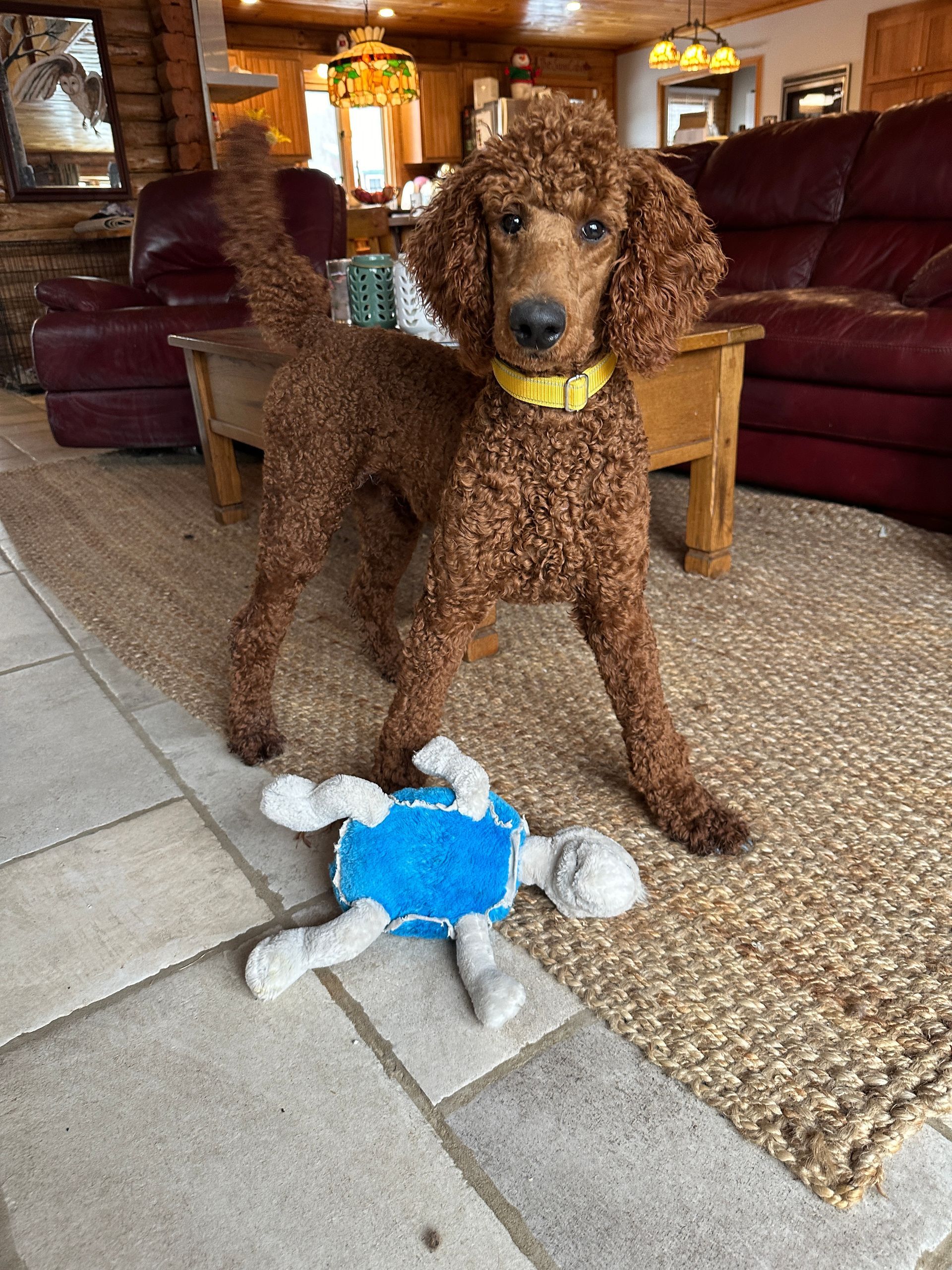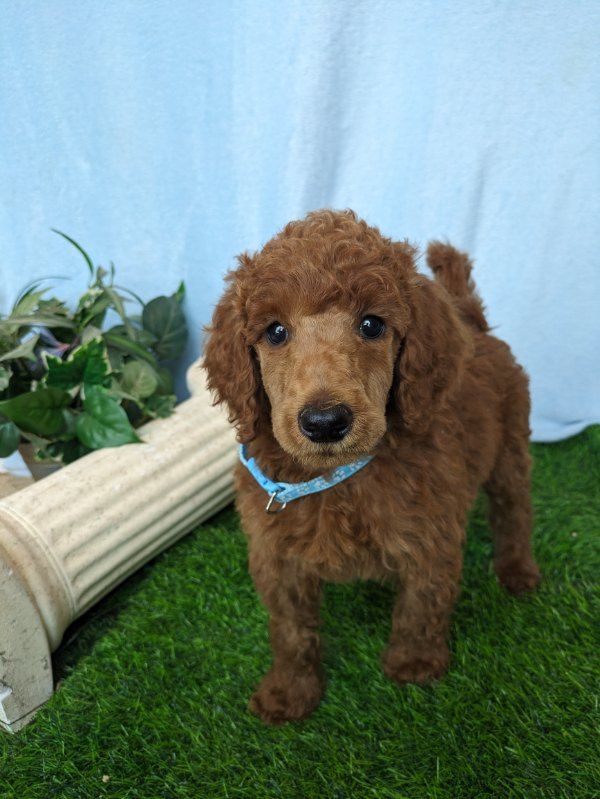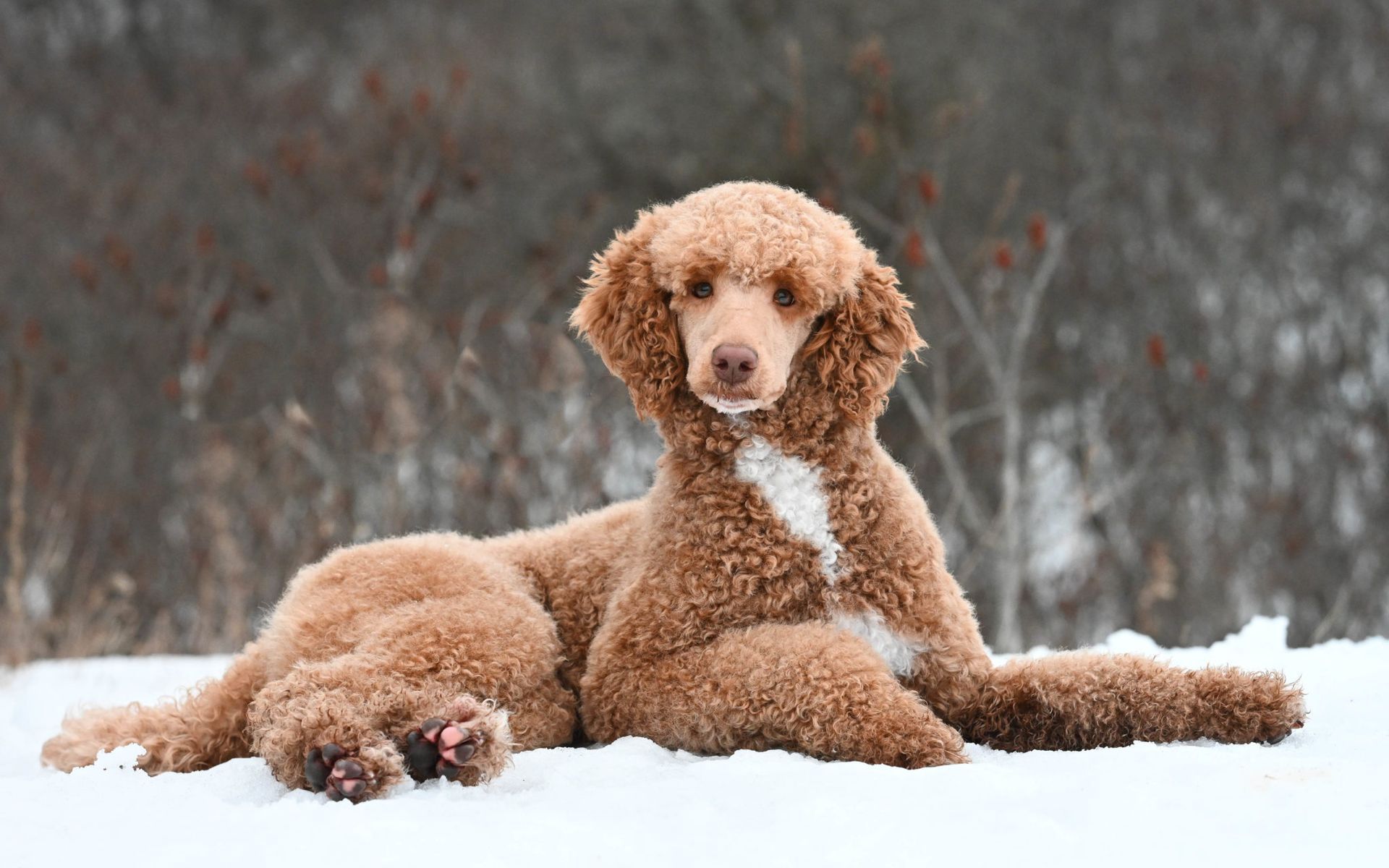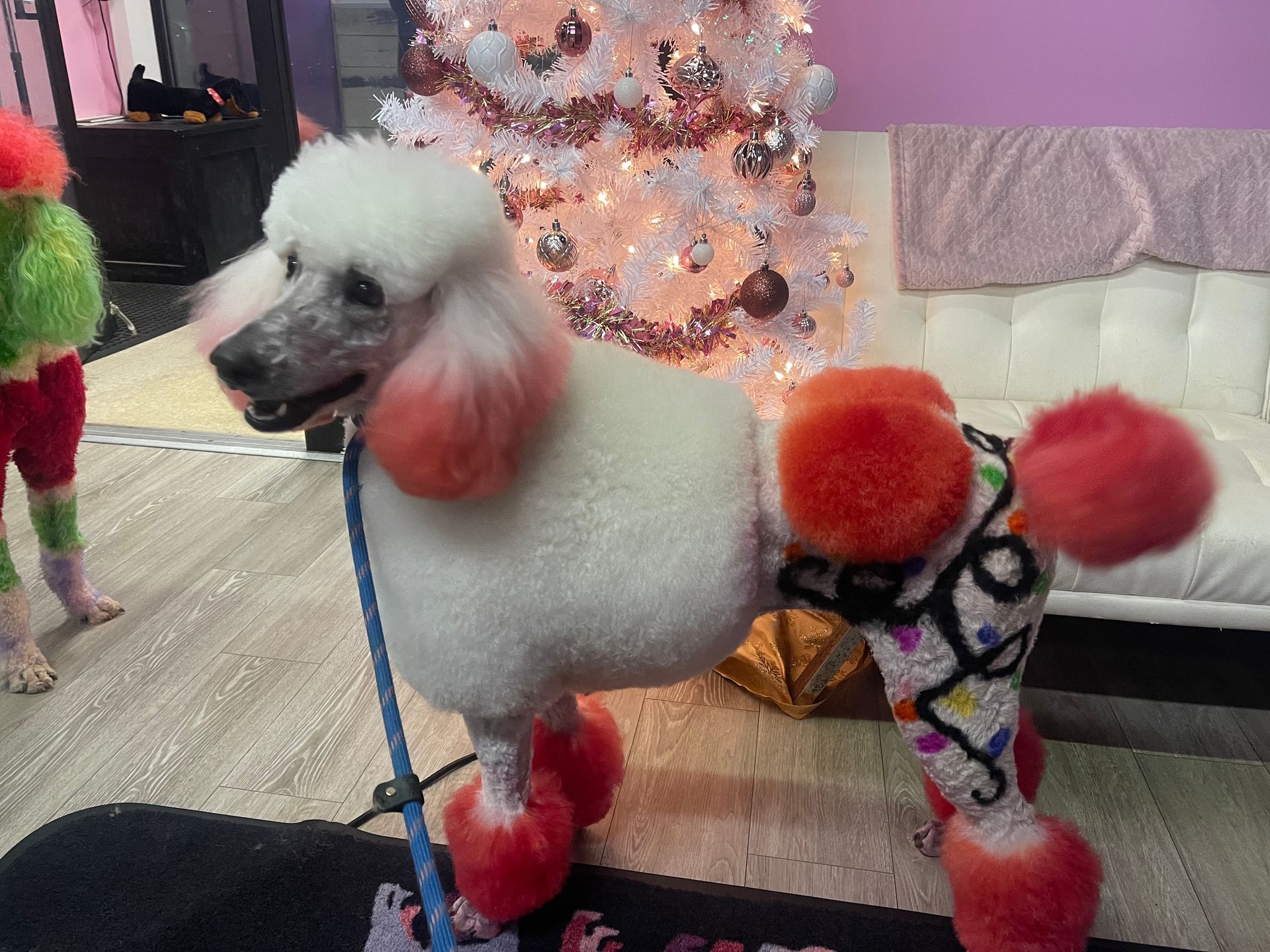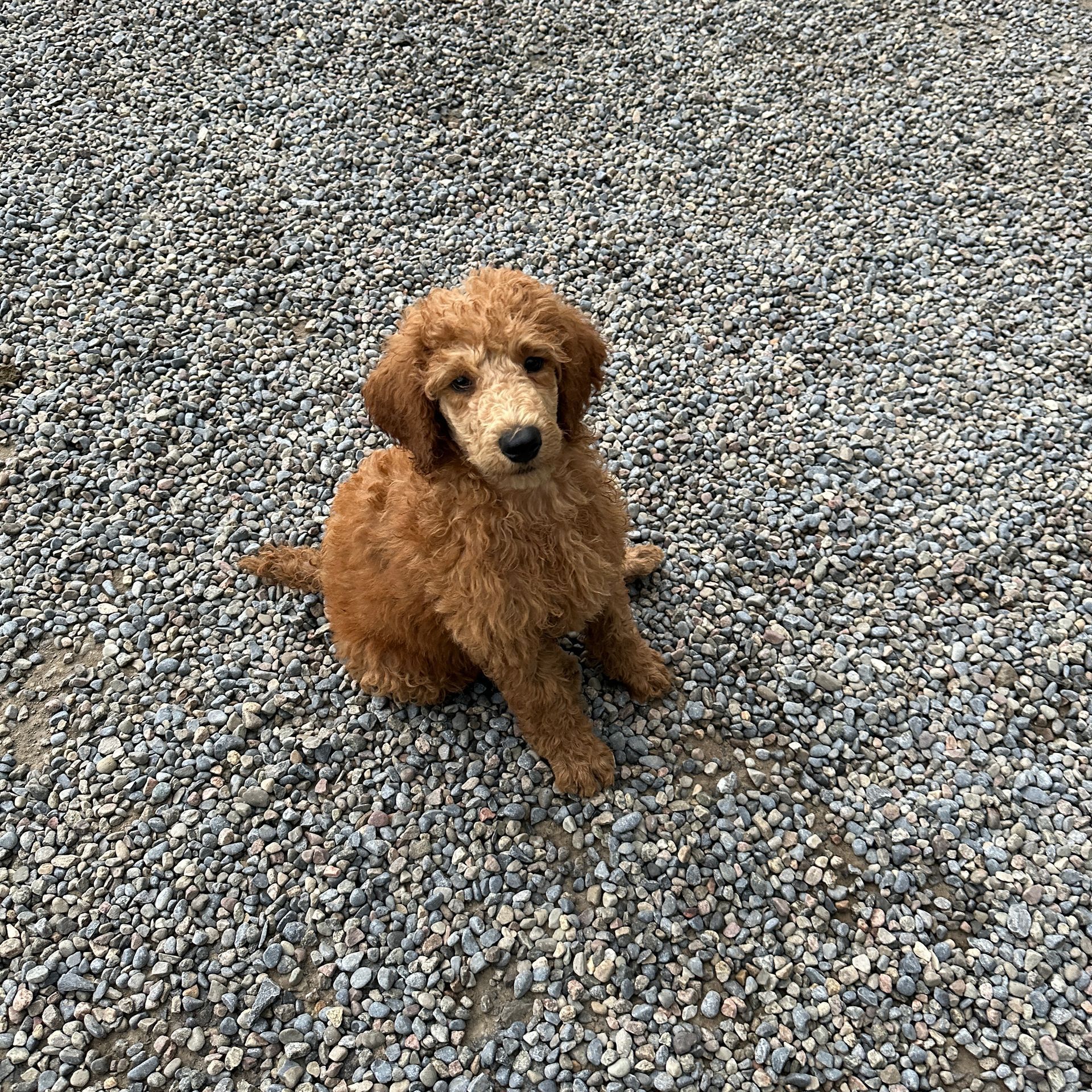Hillside Standard Poodles Blog
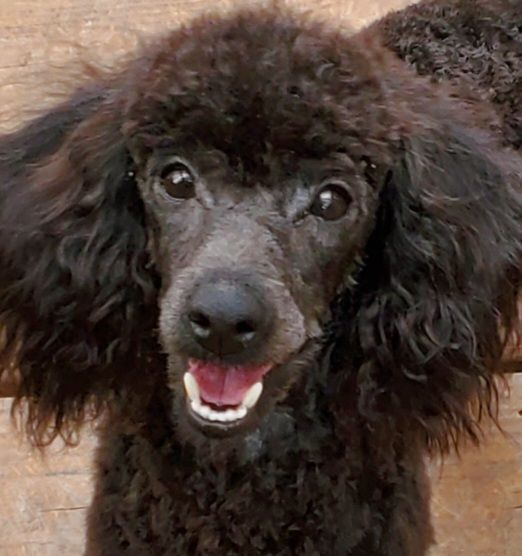
What Are The Best Qualities of a Standard Poodle? When it comes to choosing a pet that combines elegance, intelligence, and a loving temperament, the Standard Poodle stands out as an exceptional choice. Renowned for their versatility and distinctive looks, Standard Poodles are a beloved breed for many reasons. Here are some of the best qualities that make Standard Poodles a fantastic addition to any family. Intelligence and Trainability Standard Poodles are celebrated for their remarkable intelligence, ranking as one of the smartest dog breeds. Their keen intellect makes them highly trainable, capable of learning commands and tricks with ease. This intelligence is not only beneficial for basic obedience training but also makes them excellent candidates for advanced training, including agility, therapy, and service work. Their ability to quickly grasp new concepts and their eagerness to please their owners create a rewarding training experience for both the dog and the handler. Affectionate and Loyal Companions Beyond their brains, Standard Poodles are known for their affectionate and loyal nature. They form strong bonds with their families and thrive on human interaction. This breed is often described as people-oriented, enjoying the company of their owners and being involved in family activities. Their loyalty is evident in their protective instincts, as they are naturally watchful and will alert their family to any unusual activity. Despite their elegant appearance, they are down-to-earth and enjoy a good cuddle session just as much as a playful romp in the yard. Elegant Appearance and Hypoallergenic Coat You absolutely cannot overlook the striking appearance of the Standard Poodle . Their distinctive curly coat is not just for show; it serves a practical purpose as well. The Poodle's coat is hypoallergenic, making them a suitable choice for individuals with allergies. Regular grooming is required to maintain their coat, but this also means they shed very little, keeping your home cleaner. Their elegant and dignified appearance often turns heads, but underneath the glamorous exterior lies a playful and energetic dog that loves to have fun and stay active. In summary, the Standard Poodle's combination of intelligence, affectionate nature, loyalty, elegant appearance, and hypoallergenic coat makes them an exceptional breed. Whether you're looking for a family pet, a service animal, or a performance dog, the Standard Poodle excels in all areas, proving that they are much more than just a pretty face. If you're looking for a dog that will fit well with your family and lifestyle, look no further than Hillside Standard Poodles . Hillside Standard Poodles has the best Standard Poodle Puppies in the Northeast. Give us a call today at (315) 790-7472 or email us at hillsidepoodles@gmail.com to choose the Standard Poodle puppy of your dreams. #standardpoodles #standardpoodlesforsale #hillsidestandardpoodles #standardpoodlepuppiesforsale #hillsidepoodles
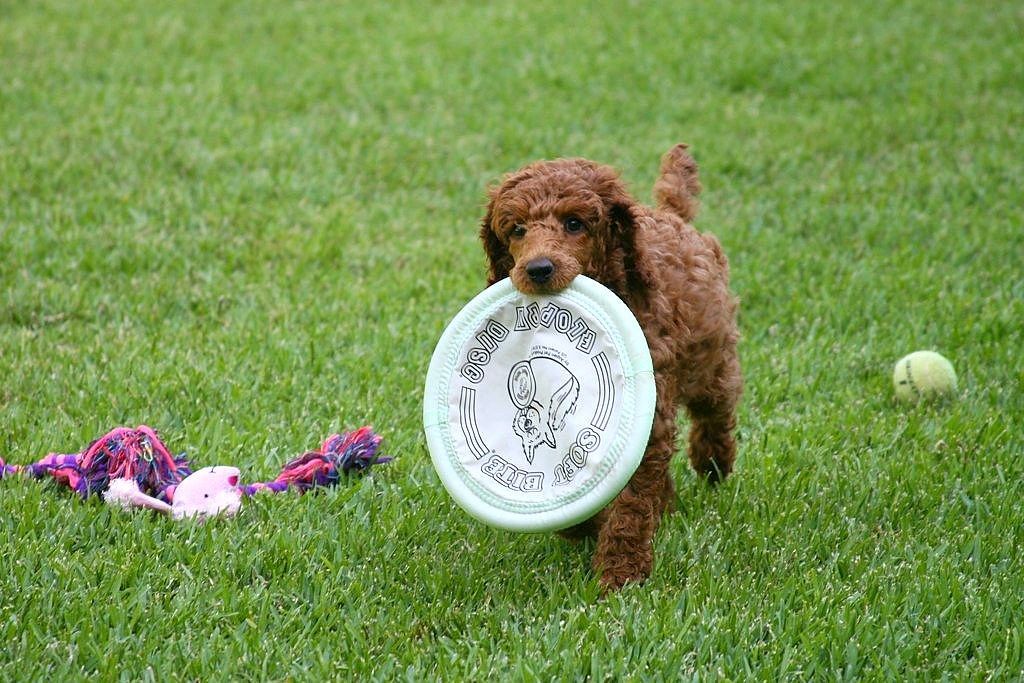
Standard poodles are known for their intelligence and their eagerness to learn and please. Properly training your standard poodle will not only make them a better behaved companion, it’s also an important part of their mental health and wellness. While every pup is different, here are five general tips to help you train your standard poodle puppy. 1. Understanding your poodle’s personality: Poodles are highly intelligent and perceptive animals. They are revered for their sharp minds and quick learning abilities. They also sometimes get a bad reputation for being mischievous and naughty. Standard poodles aim to please their owners and they thrive off being challenged. When these pups aren’t getting those needs met, that’s when we tend to see poodles acting “naughty”. Another aspect of a poodle’s personality is their sensitivity. They’re very intune with their owner’s emotions and their environment. This makes a poodle an excellent companion but also means that they require gentle, positive training methods. When it comes to training your puppy, it’s important to take these considerations into account: Your puppy wants to please you – give them a chance to do so Your poodle wants to be challenged – make training a regular part of your day Your mood will affect how your pup responds – make sure you’re in the right headspace before you begin training so they’re not picking up on your worries and stress Your positive reinforcement is what your pup is seeking most – especially when you’re training your poodle, giving lots of praise and love is the best kind of training tool 2. Consistency is Key: When you’re training your poodle, it’s important to be consistent. This will help your pup learn your expectations faster and behave better more of the time. Consistency is important throughout an initial training period as well as in any ongoing training. Standard poodles are quick to pick up on patterns and routines, if their training is consistent and predictable, they will learn much more quickly. Inconsistent training cues, approaches, rewards and corrections can lead to confusion and frustration (for both you and your pup!). Training consistency should look something like this: Use consistent commands – “sit” and “sit down” are the same to us humans but are different to a pup. Pick a command or gesture and stick to it! Your pup will learn faster with less confusion Stick to a predictable routine – standard poodles thrive off of routine. Feeding, walking, playtime and training time should happen roughly at the same time each day to aid in your dog’s overall behavior Involve all family members – ensure each person in the family is aware and uses the commands, rewards and routines accordingly. This way your poodle will receive a unified message about acceptable behavior from all members of the family 3. Positive reinforcement works wonders: When training and working with your standard poodle, it’s important that you’re using positive reinforcement instead of negative, harsh tones or physical redirection. Since standard poodles are always looking to please their owners, the more often you can provide positive feedback for good behavior, the more of it you’ll see! Ways to use positive reinforcement in training Treats – something small and vet approved can work wonders when training. Be sure not to go overboard and maintain a close eye on your pup’s weight Praise – when you sound happy and excited about what your poodle has done, they’re going to make a positive association between their behavior and your happiness Play – standard poodles love to play, it strengthens them physically, mentally and creates a great bond between you and your pup! As these dogs are loyal and strive to keep you happy, any extra playtime they get with you is better than any delicious treat 4. Your pup wants to socialize: Socializing your standard poodle from a young age is important for their development and their well-being. Socialization includes introducing your pup to a variety of people, dogs, other animals and new environments– in a safe and controlled manor. Socializing them helps them to burn energy, use their brains and it also helps them to become well-adjusted as adult dogs. When you’re training your pup, it’s important to incorporate socialization and new experiences so your pup gets practice behaving in different settings. Focusing on this aspect as you train your poodle will help them be more well-rounded and flexible. Tips for socializing your standard poodle Start early – begin socializing your pup as early as you can, this is when they’re most receptive to new experiences Safe and positive experiences – in the earlier days of socialization training, make sure all of the experiences are as safe and positive as they can be. Use treats and praise to reinforce good behavior Gradual exposure – introduce new people, pets and experiences gradually to avoid overwhelming your pup. Start with short and controlled experiences and then over time increase the duration and variables in the interactions. Diverse environments – show your poodle a variety of places: sights, sounds, smells, textures etc. From quiet parks to busy streets, from a path in the woods to an indoor tiled floor Meet different people & different animals – It’s important that you allow your poodle to meet a wide range of people including children, and other folks who might be a little bit more unpredictable. Having your pup interact with other animals is important so when they encounter one unexpectedly, it won’t feel like a surprise. Monitor the reactions throughout socialization –pay attention to your poodle’s reactions. Note if they seem stressed, fearful or worried— and if they are, take a step back and go at a slower pace so they can feel comfortable. It’s also equally important to pay attention to the body language of the people and animals around your dog. If they seem nervous or scared, that’s another cue for you to back away and try again another time 5. It takes patience and persistence: Training your standard poodle, as with anything else in life, takes dedication, practice and persistence. These dogs learn quickly and are excited about a challenge, but each pup is unique and they will have their own pace and learning style. Staying patient and taking the time to really learn your pup’s needs will help you enjoy training more and help you achieve long-term success. Being persistent with your practice will help both you and your pup learn quicker. Important reminders in persistence and patience when it comes to training your pup Patience reduces stress (for you and your poodle) - being patient when you’re training your pup will reduce the amount of stress and pressure you put on yourself AND your dog. Remind yourself that it’s okay if your pup isn’t behaving perfectly all the time, and that each time you train, means you’re one step closer to a better-behaved poodle Patience means trust – giving your dog much deserved patience when training (and throughout the day-to-day) builds trust between you and your poodle. Your dog will always feel safe and loved if you train with patience Set realistic goals – avoid frustration by establishing achievable training goals. Celebrate small victories and adjust your goals accordingly based on your unique poodle Remember - you are learning as much as your pup is, so be kind to both yourself and your poodle. There are long-term benefits that come with a well-trained dog. Your poodle will be your loving companion and roommate for years to come, it’s important to establish a great relationship from the beginning that includes boundaries and love! The more time you spend training your pup the more well-adjusted and well-trained your poodle will be. Your pup will be happier because its physical and cognitive needs will be met, and the bond between you will be strong and continue to grow. Remember to be patient, loving and consistent!

